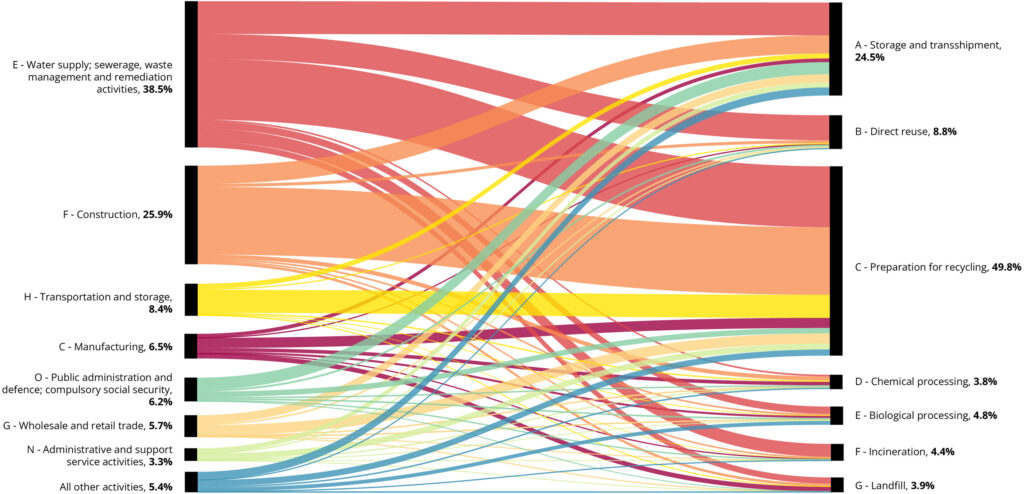As appointed in the EU Circular Economy Action Plan, cities and regions in EU member countries start accompanying their circular economy strategies by monitoring frameworks, often called Circular Economy Monitors (CEM).
Having the task to assess the performance towards the achievement of set targets and steer decision-making, CEMs need to rely on many statistics and datasets. Waste statistics play an essential role in circular economy monitoring as they provide insights into the remaining linear part of the economy. The collection of waste statistics is mandated by the European Commission, which offers general data collection and processing guidelines.
The Netherlands has one of the most detailed waste registries among the EU countries. In addition, the country’s largest metropolitan region, Amsterdam, is currently building a CEM that tracks progress toward the set goals, highlights which areas need improvement, and estimates target feasibility.
A research paper uses the Amsterdam CEM as a case study to explore how the existing waste registration system in the Netherlands can support decision-making. The data is analyzed with the help of four queries that relate to the CEM’s goals and require data mapping to be answered.
The OECD Report on the Circular Economy in cities and regions distinguishes four key objectives in monitoring CE: triggering actions; making a case for the circular economy; monitoring performance and evaluating results; and raising awareness. The same objectives, although termed differently, are set forward in the Amsterdam CEM: determining the CE decision-making space; evaluating the feasibility of local CE strategies; assessing the social and ecological impact; and communicating the results to the public. This research focuses on the first three goals and objectives, leaving awareness and public communication beyond the current scope.
The data mapping and analysis process has revealed several waste data collection limitations and gaps in current circular economy research and data analysis. At the same time, the available data already supports significant insights into the status quo of the existing waste system and provides opportunities for circular economy monitoring.

GeoFluxus BV, a spin-off company from the Delft University of Technology, works with multiple urban regions in the Netherlands to build a Circular Economy Monitor.
